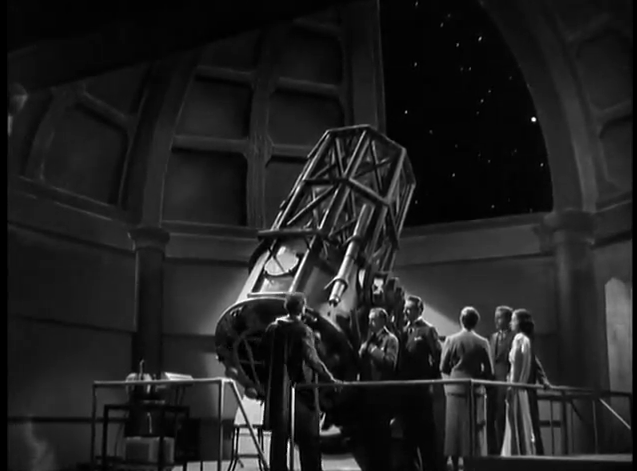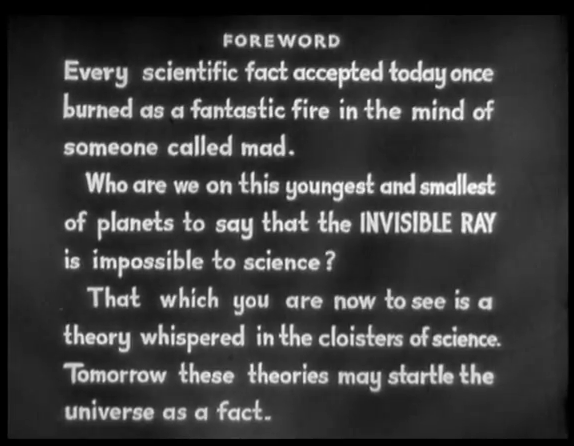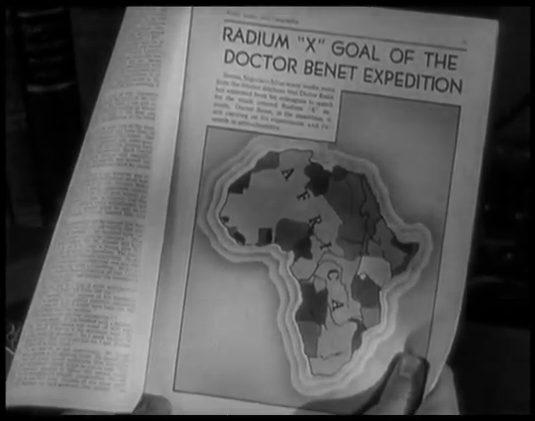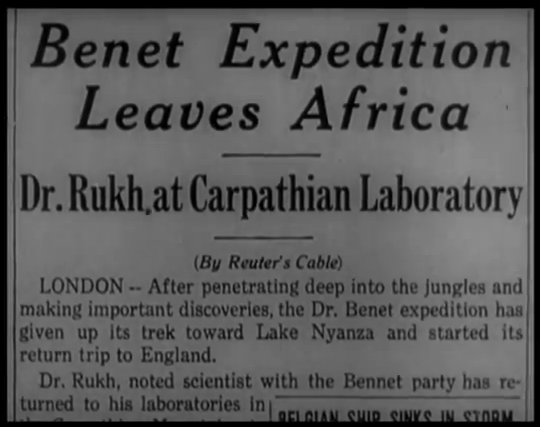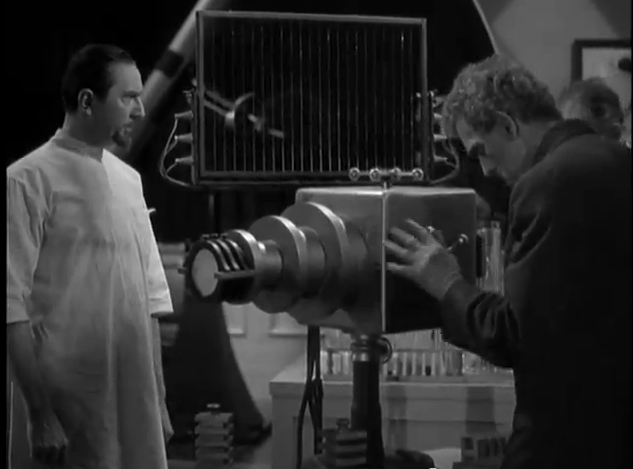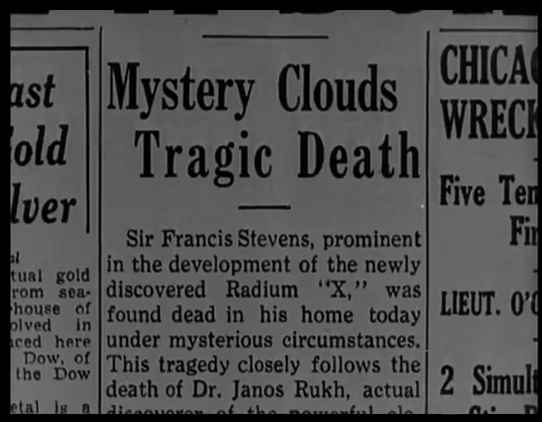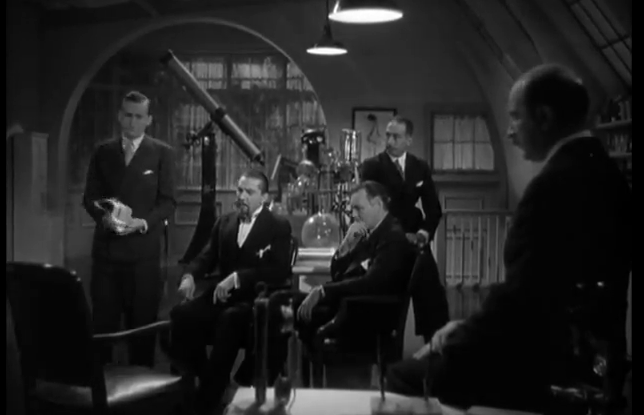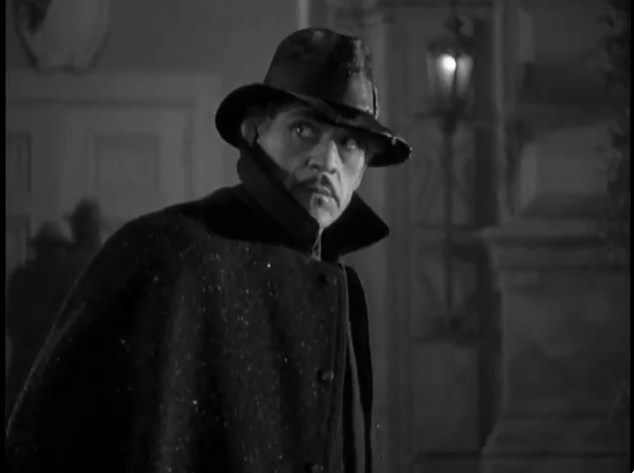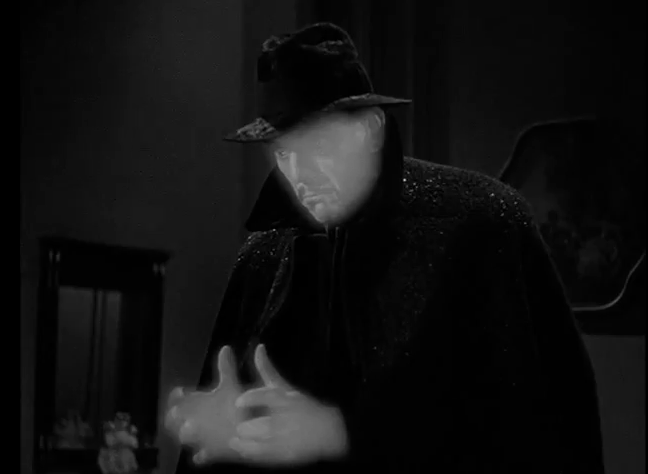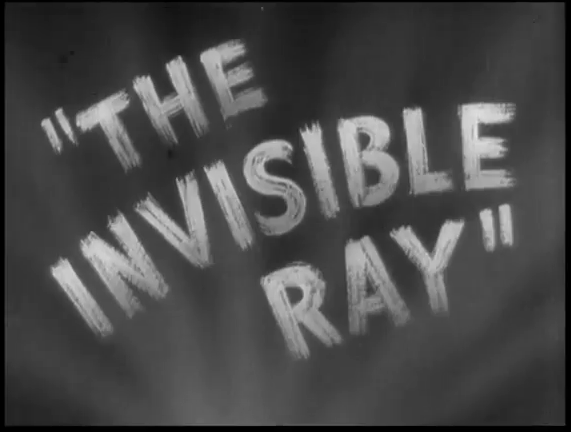
#20 – The Invisible Ray (1936)
The Invisible Ray (1936)
Film review #20
Director: Lambert Hillyer
A film about the impacts of scientific discoveries on the human mind…
Dr. Janos Rukh is a bit of an outcast scientist. He has invented a telescope that can see far into space- in particular, the Andromeda Galaxy. By picking up rays of light from the galaxy, he can use them to look at how Earth looked in the past. He has invited A group of people to witness his experiment, including his wife Diana, Dr. Felix Benet, Sir Francis Stevens, his wife Arabella, and their nephew Drake.
The experiment is a success, and the group view the Earth from millions of years ago. They witness a meteor crashing into the continent of Africa, which coincides with the other scientists investigation into the meteor, and now they have a location to search thanks to Rukh’s experiment. During this evening, there is also an instant attraction between Diana Rukh and Drake, which they both try to ignore.
The group has travelled to Africa on an expedition to find the meteor. Rukh has split from the group to find it himself. When he finds the meteor, he becomes exposed to the radiation of “Radium X”, of which the meteor is composed. Later that night, when it is dark, he begins to glow as a side-effect to the radiation, and he can kill someone just by touching them. He confides in Dr. Benet, who develops a counteragent that Rukh must take every day so the effects don’t return and kill him.
The radiation also begins to affect Rukh’s mind. When the group return to Paris, Dr. Benet uses a fragment of the meteorite to heal sickness and cure blindness (the cure also works on Rukh’s elderly mother), Rukh feels as though his discovery has been stolen, and begins plotting revenge. He fakes his own death, upon which Diana and Drake marry. Rukh intends to kill off the five people on the expedition who have betrayed him, and he goes after them one by one.
Eventually, only Ronald, Diana and Benet are left. They work with the French police to spring a trap to lure him in by staging a lecture and inviting a number of leading scientists. They will turn off the lights at midnight, and if Rukh is there, he will light up. Rukh infiltrates the party and kills Benet, and heads upstairs to finish off Diana and Drake. Rukh finds Diana, but finds himself unable to kill his former wife, and goes to find Drake instead. Just then, his mother appears and tells Rukh to stop. She smashes the bottle of the counteragent made by Benet, and he jumps out a nearby window, falling to his death, and bursting into flames…
I think that what we have is an interesting scenario in this movie: What are the human ramifications of scientific pursuits? Rukh is very much portrayed as a recluse, and a little bit of a mad scientist. This characteristic is the central point of the film, as he slowly loses his mind and desires to exact revenge on those who have stolen his discovery. The foreword to the movie reminds us that every scientific fact was once “a fantastic fire burning in the mind of someone called mad”. A scientist must be daring to challenge what is already considered fact, and change people’s understanding of the universe. In the past, this would have earned them ridicule and persecution from religious leaders, heads of state and fellow scientists (Although this happens less so today, there is no doubt that it still exists.
The movie asks us to keep an open mind, and speculate whether the events that take place in the film could happen. Could we really look back in time by capturing the light of distant galaxies? Does that light contain information to what it has seen? It would be easy to dismiss such a wild tale, but we know that the light we see coming from distant stars is perhaps thousands of years old, and by looking at the stars in the night sky, we are essentially looking back in time. Could that light contain information about what it has seen during its travels? Very unlikely, but this movie does encourage us to keep an open mind to the possibilities of new discoveries that could change everything we know about the universe. This is what science is: A self-correcting procedure, though perhaps it is misrepresented as a cold, infallible truth, which is simply not (for me) what science is about.


